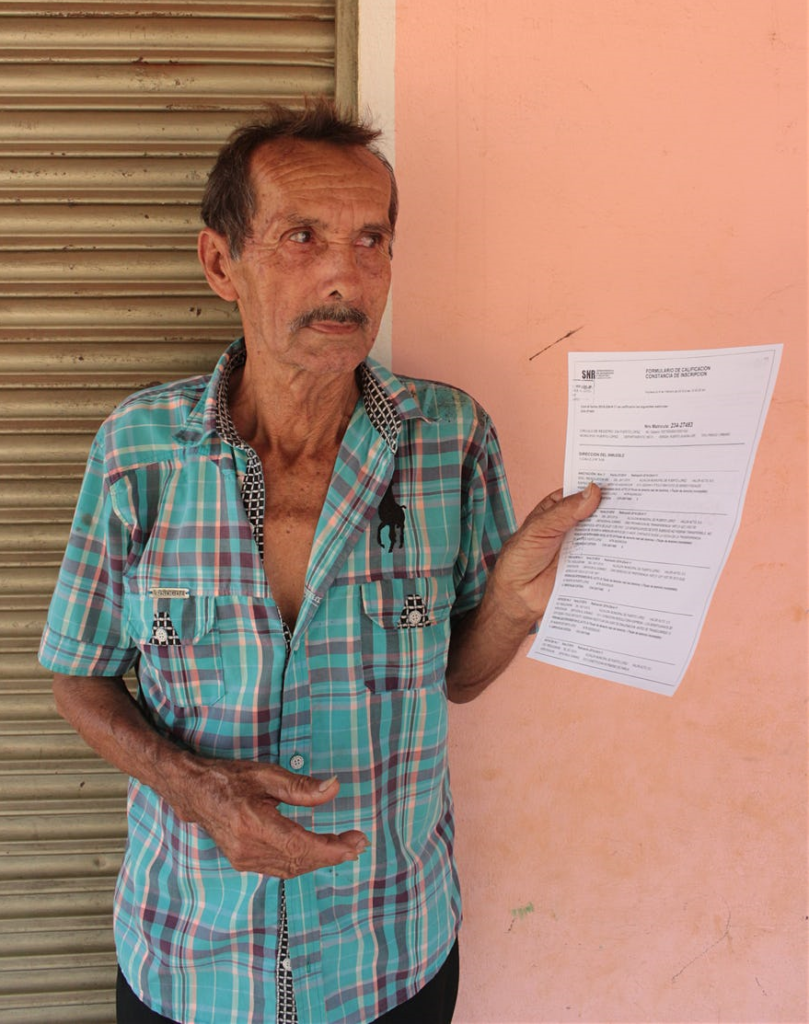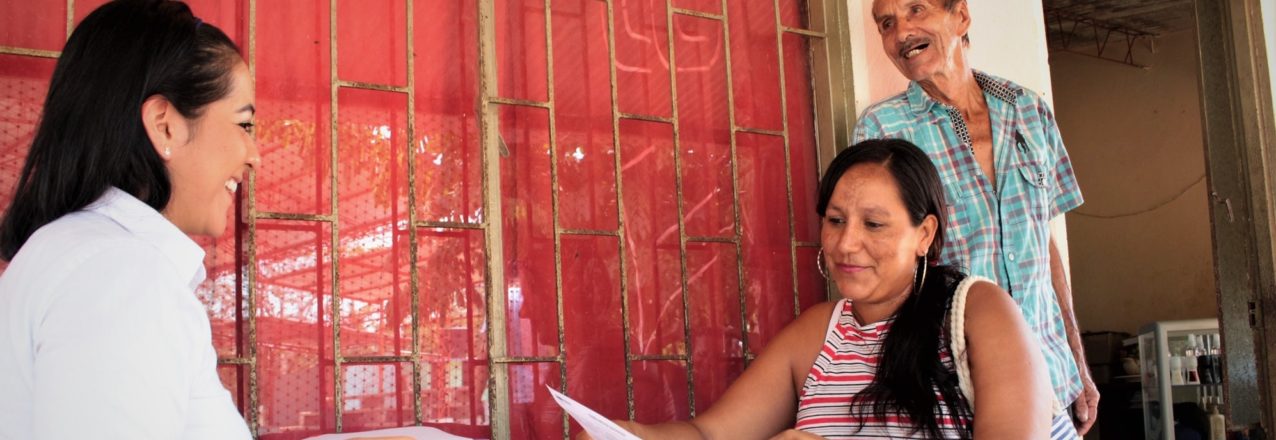By Land and Rural Development Program in Colombia
 Maritza Losada moved to Puerto Guadalupe, Meta five years ago when her husband found a job with a large biomass energy company that grows sugar cane. She and her husband purchased a lot in the town’s poorest neighborhood, Barrio Nuevo. The district remains today much like it was in 1995 when the government created the housing project for future agro-laborers: no roads, no sewage, no gutters.
Maritza Losada moved to Puerto Guadalupe, Meta five years ago when her husband found a job with a large biomass energy company that grows sugar cane. She and her husband purchased a lot in the town’s poorest neighborhood, Barrio Nuevo. The district remains today much like it was in 1995 when the government created the housing project for future agro-laborers: no roads, no sewage, no gutters.
The town sits on banks of the Meta River, which flows into the Orinoco River, and allows farmers and agro-industrialists to transport their goods over hundreds of miles across the eastern plains of Colombia. Nevertheless, this river and the rainy season turn Maritza’s neighborhood into a muddy bog. Every year, the neighbors lay down stones and boards to build walkways to maneuver about their homes.
Over time, they have erected makeshift electric posts and wires to gain access to light and electricity. Maritza’s house too has slowly evolved, from a canvassed shack to a more durable, yet uninsulated, structure with a zinc roof and walls. Inside, there are no dividing walls or rooms; in one corner sleeps her two children, in the other she and her husband. She is currently expecting her fourth child.
With a reliable income and work benefits, under the law, her husband could access money deposited in his retirement pension for certain objectives, including for home improvements. There is only one problem the couple never processed the paperwork for a registered land title for their property. With no registered property title, Maritza and her family cannot access this nor any other government subsidy.


